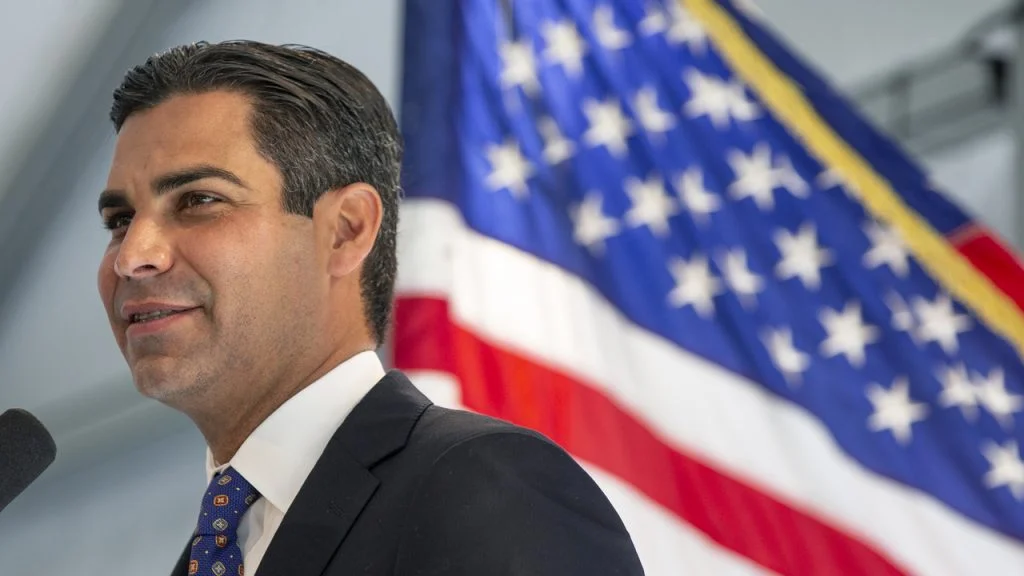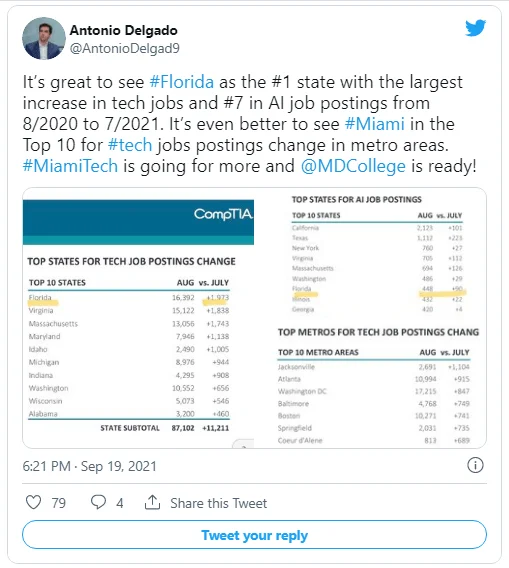Francis Suarez Miami’s Mayor has been praising the success of a recent plan to fund municipal projects with the proceeds of a city-specific crypto protocol. He believes that if the project succeeds, residents “won’t have to pay a cent in tax.”

Miami’s city commissioners approved on Sept. 13 to accept cash created by MiamiCoin, a new cryptocurrency established by CityCoins in August.
The coin is based on Stacks, an open-source network of decentralized apps and smart contracts that leverage the Bitcoin blockchain as a programmable foundation.
The requirement that 30% of all coins mined be routed to a digital wallet designated for the city is hard-coded into MiamiCoin’s protocol.
These monies will be used for projects including reducing climate change risks, sponsoring efforts for underserved communities, and investing in crypto education for digital entrepreneurs.
Last week, Fox Business calculated that every 10 minutes, about $2,500 worth of Stacks (STX) at its $1.50 value were put into the city’s wallet.
Mayor Suarez corroborated the approximate amount in a Fox interview on Monday, saying that mining earnings generated over $2,000 every 10 minutes and “about $5 million USD over the last 30 days.”
The Miami City Commission did not vote to use the monies raised since August when they voted to accept them. Instead, it received the revenues in US dollars and would put them aside for future municipal spending.
The city does not have direct custody of cryptocurrencies because it is converted into fiat currency. Suarez remarked of the initiative in his Fox interview:
“It’s interesting because it’s not an involuntary tax, it’s not philanthropy, it’s something that is completely different and could revolutionize the way governments are funded in the future.”
“It is theoretically possible that the city might earn enough taxes through MiamiCoin that our people would not have to pay a single cent in taxes,” he continued.
According to statistics given by Antonio Delgado, vice president of innovation and technology partnerships at Miami Dade College, other measures appear to imply that Miami has been garnering more IT job posts during the summer:

A Miami-Dade County commissioner sponsored a motion this spring that would allow citizens to pay municipal taxes using cryptocurrencies like Bitcoin, in keeping with Mayor Suarez’s various pro-crypto efforts.
In February, the mayor proposed an official resolution that would allow Bitcoin to be accepted as a payment method in several sectors of the local administration.
Rather of taking immediate action to execute the suggestion, the commission agreed to evaluate its feasibility.
